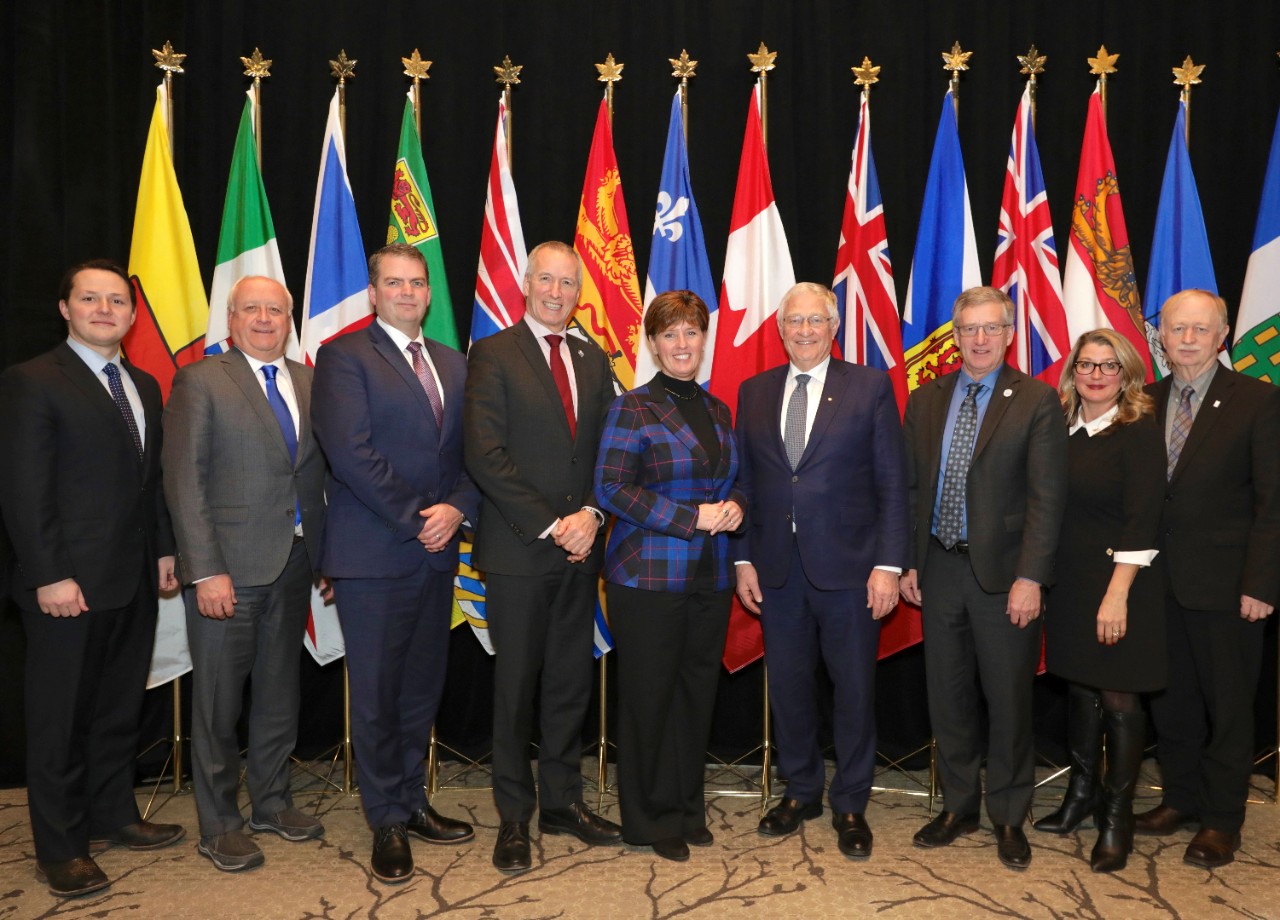Canada’s Ministers of Agriculture focus on important support measures for farmers and processors at their annual conference

Canada’s federal, provincial, and territorial (FPT) Ministers of Agriculture wrapped up their two-day virtual conference with important discussions on the future of Business Risk Management programs, a discussion on balance in the retail supplier relationship, and a look ahead to the design and development of key priorities for the next agricultural policy framework
Agriculture and Agri-Food Canada
Ministers discussed options for short-term improvements to AgriStability. The federal government tabled a proposal that will be considered in more detail by provinces and territories. While no consensus was reached, efforts will continue on a common path forward.
“The Government of Canada is ready to support our producers as they continue to feed us,” stated Marie-Claude Bibeau, federal Minister of Agriculture and Agri‑Food. “I am determined to continue working with my provincial and territorial colleagues to find common ground and make meaningful improvements to the financial safety net.”
.
“I appreciate the work we did collectively to make progress on important matters, such as building the next agricultural policy framework”
FPT governments are listening to farmers and stakeholder groups, who have been asking for meaningful changes and alternatives to the current risk management approach. Ministers agreed that programs need to improve to better target emerging risks that threaten the viability of the farm, which may include options based on insurance principles. Moreover, programs should be simple, predictable, and respond quickly for producers, while treating farms fairly and equitably. To address these objectives, Ministers requested that analysis on alternative designs be completed to inform discussions on longer-term risk management reform at their next meeting in July 2021.
“The FPT agriculture ministers met this year during a unique and difficult period for the agri-food sector and for the networks that provide families with the supply of safe and nutritious food that they rely on,” added Ernie Hardeman, Minister of Agriculture, Food and Rural Affairs for Ontario. “I appreciate the work we did collectively to make progress on important matters, such as building the next agricultural policy framework.”
Ministers also took the opportunity to look further ahead as they launched discussions for the design and development of the next agricultural policy framework to follow the Canadian Agricultural Partnership, which will come into force on April 1, 2023. Ministers look forward to launching an initial engagement with industry this coming year to consult and collaborate on priority areas for development of the new framework, to be articulated in the policy statement that will be tabled in Guelph next summer. They noted the importance of recognizing regional differences and shared national objectives within that policy statement. Ministers also reviewed the lessons learned from a number of one-time initiatives to support producers and processors throughout the COVID-19 pandemic.
Ministers discussed the concerns of processors, producers and independent grocers regarding increased retailer fees on suppliers and the need for balance in the supplier-retailer relationship, while also ensuring that Canadians continue to have access to a reliable food supply at affordable prices. FPT governments agree that collaborative action is the best approach.
“I thank the federal government for their business risk management proposal, and look forward to working with my colleagues to review and consider it,” Hardeman said.
As such, an FPT working group will be created and will consult with experts and industry members to clarify the impact of the announced fees. The objective is to target potential solutions that benefit the entire food value chain. To support the working group’s discussions, FPT Ministers call on industry to actively contribute to the development of solutions that will help ensure that Canada has the appropriate conditions for all supply chain partners to prosper. Ministers asked that the working group begin its work as soon as possible in order to propose concrete actions at the next Ministers meeting in July 2021.
Ministers also acknowledged the importance of essential front-line food workers.
The Ministers agreed to build on the progress made at this conference by continuing to meet regularly to advance immediate and long-term issues on behalf of the agriculture and agri-food sector as they lead up to their next Annual Conference in Guelph, in July 2021. Today’s meeting was their 21st ministerial discussion since the pandemic began in March.
Although COVID-19 has disrupted global supply chains, the Canadian agri-food sector remains resilient, and exports of agri-food products continue to grow, trending up eight per cent through the first eight months of 2020 compared to the previous year.












